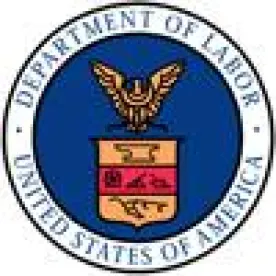Thrivent wins injunction on anti-arbitration clause.
Update on the Fiduciary Rule Delay
On November 1, the White House Office of Management and Budget (OMB) received a much-anticipated notice from the US Department of Labor (DOL) named “18-Month Extension of Transition Period and Delay of Applicability Dates; Best Interest Contract Exemption; Class Exemption for Principal Transactions; PTE 84-24.” Although the details of the notice are not yet known (and we have seen some surprises in the past), the title suggests that the conditions of the named exemptions that are currently scheduled to become applicable on January 1, 2018, will be delayed by 18 months to July 1, 2019, as the DOL had originally proposed in August.
But, the delay is not official until the OMB approves it and the DOL publishes the notice in the Federal Register. In a recent court filing in the Thrivent litigation against the fiduciary rule (discussed below), the DOL indicated that this process typically takes about three weeks—in which case the delay will be final roughly on November 22—but the process may also be longer or shorter. As such, there may be continued uncertainty about whether and when the delay will be finalized, what the delay looks like, and what financial institutions should do now.
Here are some suggestions for next steps:
-
Contingency planning. Based on the DOL’s statements and the ongoing reevaluation of the fiduciary rule, we are cautiously optimistic that the delay will be ultimately finalized. However, a number of the exemptions’ conditions, including the negative consent contracts and transaction and web disclosures, may require significant lead times to prepare and deliver to customers. As such, financial institutions may want to develop a plan for how they would comply with these conditions if the delay is not finalized when and as expected.
-
Consider seeking additional non-enforcement relief. The DOL’s and Internal Revenue Service’s current broad non-enforcement policy, issued in FAB 2017-02, ends on January 1, 2018 (though it may be extended in connection with the delay once it is finalized). Financial institutions may want to consider whether obtaining additional non-enforcement relief would be helpful to cover any potential “gap period” where the conditions of the exemptions become temporarily applicable because the delay is not finalized by January 1. This could be modeled after the relief the DOL provided in FAB 2017-01 with respect to the uncertainty surrounding the delay of the fiduciary rule’s original April 10, 2017 applicability date. If the DOL is willing to provide such relief, it may ease some pressure on financial institutions that are weighing the risks of whether to implement compliance with conditions that are likely to be delayed and help financial institutions in their contingency planning efforts.
Injunction for Thrivent Against Enforcement of Anti-Arbitration Provision
On November 3, the US District Court for the District of Minnesota issued a preliminary injunction enjoining the implementation and enforcement of the Best-Interest Contract (BIC) Exemption’s anti-arbitration condition against Thrivent Financial for Lutherans, the plaintiff in the case. The court issued the preliminary injunction despite the fact that the DOL had conceded in the case that the anti-arbitration provision violates the Federal Arbitration Act, finding that “[n]otwithstanding DOL’s current efforts to extend the BIC Exemption’s applicability date . . . the current state of regulatory limbo threatens Thrivent with [irreparable] harm.” The provision in question, now unenforceable against Thrivent, would prohibit financial institutions from contractually requiring customers to waive or qualify their rights to pursue class actions in courts. At the same time, the court stayed the litigation in light of the DOL’s ongoing reassessment of the BIC Exemption.
It is important to note that the injunction only applies to the DOL and Thrivent, and is only with respect to the anti-arbitration provision—not the fiduciary rule itself or other conditions of the BIC Exemption. Further, regardless of both the DOL’s now-stated position regarding the BIC Exemption anti-arbitration requirement being in violation of the Federal Arbitration Act and the court’s ruling in this case, the position of the Financial Industry Regulatory Authority (FINRA) has historically been that entities subject to its jurisdiction cannot include provisions in pre-dispute arbitration agreements that prevent customers from participating in class actions. See In re Dep’t of Enforcement v. Charles Schwab & Co, 2014 WL 1665738 (FINRA Bd. 2014). Therefore, there remains a question as to whether the elimination of this provision would have any practical impact on FINRA members acting in their capacity as broker-dealers.
We will continue to monitor further developments in this area and keep you informed.




 />i
/>i
